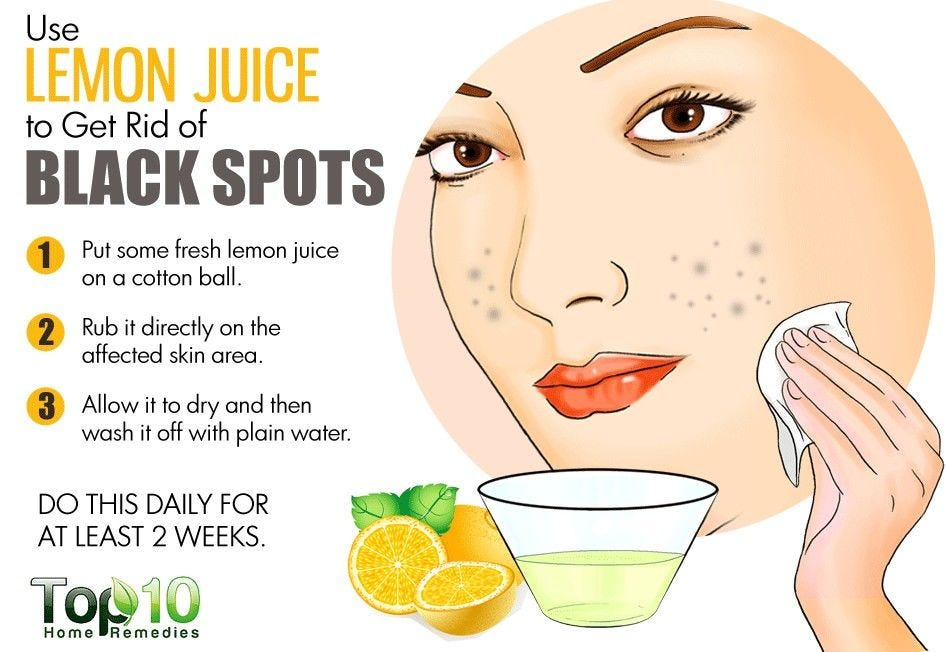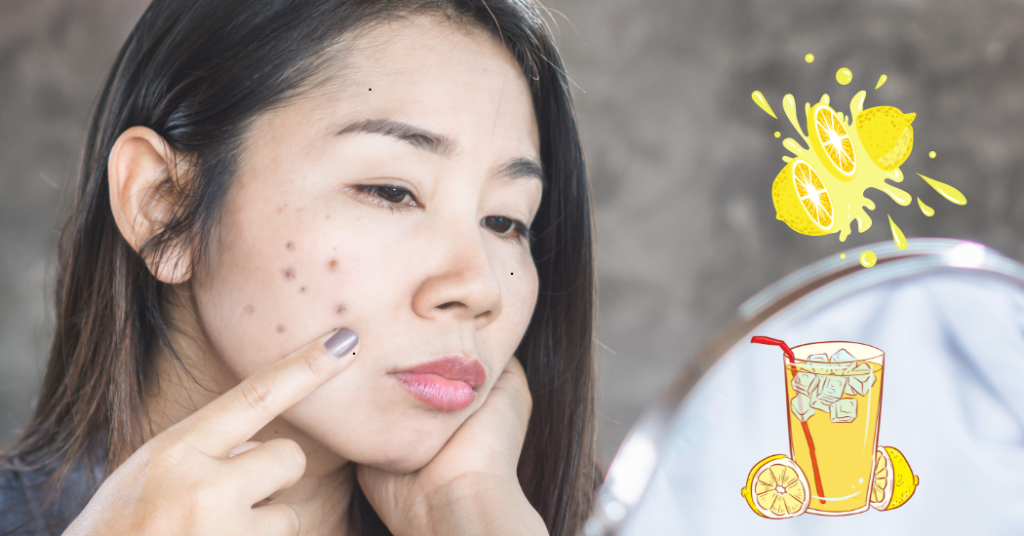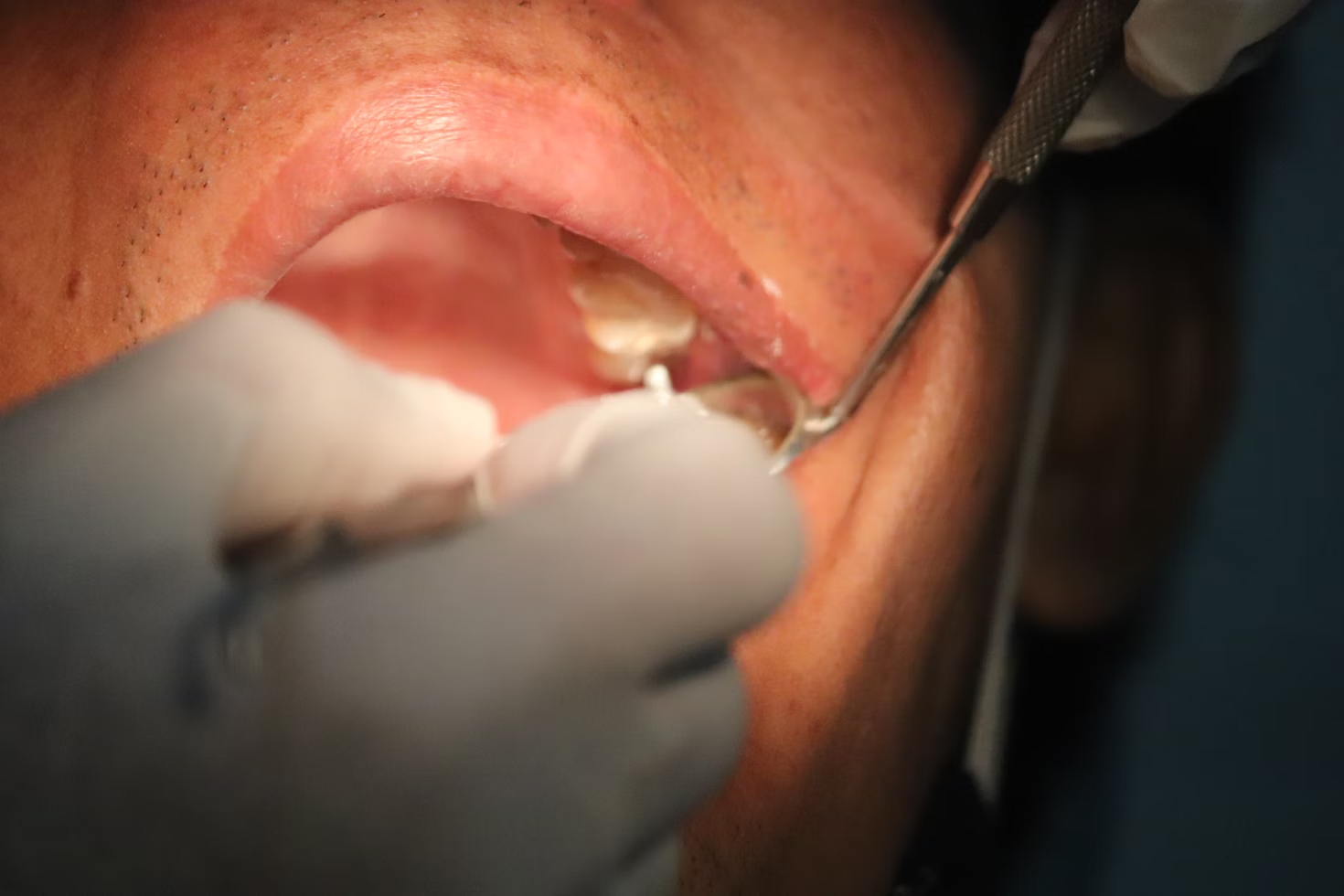HEALTH
Wellhealthorganic.com-easily-remove-dark-spots-lemon-juice Best Guide
Lemon juice might be your new best buddy if you’re trying to lighten those dark areas! This home cure is rich in vitamin C and may help balance out skin tone,

Lemon juice might be your new best buddy if you’re trying to lighten those dark areas! This home cure is rich in vitamin C and may help balance out skin tone, according to wellhealthorganic.com. To treat the spots, just dab them with fresh lemon juice, let them remain for ten to fifteen minutes, and then rinse them off. To ensure it is safe for your skin, always do a brief patch test beforehand. Since lemon juice might make your skin more sensitive to the sun, don’t forget to apply sunscreen afterward. Those stains could really start to disappear with continued usage!
| Main Ingredient | Lemon Juice |
| Key Nutrients | Vitamin C, Citric Acid, Potassium |
| Primary Benefit | Lightens dark spots and brightens skin |
| Common Causes of Dark Spots | Lemon Juice and Honey: 1 tbsp each, leave for 15 minutes Lemon Juice and Aloe Vera: 1 tbsp each, leave for 20 minutes Lemon Juice and Yogurt: 1 tbsp lemon juice, 2 tbsp yoghurt, leave for 20 minutes |
| Types of Dark Spots | Solar Lentigines (sunspots), Melasma, Post-inflammatory Hyperpigmentation |
| Application Method | Apply fresh lemon juice with a cotton ball directly to dark spots |
| Recommended Frequency | 2-3 times per week |
| Duration of Application | 10-15 minutes per session |
| DIY Treatments | Patch test, dilute with water or other ingredients, and use sunscreen after application |
| Potential Side Effects | Skin irritation, photosensitivity |
| Precautionary Measures | After a few weeks of consistent use |
| Alternatives | Aloe Vera, Turmeric, Apple Cider Vinegar, Over-the-counter products (Hydroquinone, Retinoids, Vitamin C Serums) |
| Time to See Results | Potential increased skin sensitivity irritation with overuse |
| Storage of Lemon Juice | Airtight container in the refrigerator for up to one week |
| Effectiveness | Varies by type and severity of dark spots |
| Skin Sensitivity | Not suitable for very sensitive skin; patch test recommended |
| Long-term Use Effects | Regular sunscreen use, avoiding picking at skin, maintaining hydration, and consistent skincare routine |
| Additional Skin Care Tips | Sun Protection Factor Needed Post-Application |
| PH Level of Lemon Juice | 2-3 (Highly acidic) |
| Vitamin C Content | About 53 mg per 100 grams of lemon |
| Citric Acid Content | 5-6% of the fruit’s weight |
| Average Time to See Initial Results | 4-8 weeks of regular use |
| Percentage of People with Improved Skin Tone | Approximately 70% with regular use (based on anecdotal evidence) |
| Sun Protection Factor Needed Post Application | Minimum SPF 30 |
How to easily remove dark spots in lemon juice
Are you prepared to remove those black areas with a little lemon juice assistance? Here’s a quick and enjoyable method! Make sure your skin is receptive to the lemon juice by doing a brief patch test beforehand. Pour some freshly squeezed lemon juice into a dish; dilute it with a little water if you have sensitive skin. Apply the lemon juice directly to your dark areas with a cotton ball or brush, being careful not to get any on the surrounding skin. Give it ten to fifteen minutes to do its job, then immediately rinse it off if it irritates you. After that, gently dry your face, rinse it with warm water, and apply a calming moisturizer. Lemon juice might make your skin slightly sensitive to the sun, so don’t forget to use sunscreen. Your skin may seem brighter and more youthful with just a little amount of consistent application, as those dark spots may begin to disappear!
- Patch Test First: Before applying lemon juice to your face, do a patch test on a small area of skin to ensure you don’t have any adverse reactions.
- Fresh Lemon Juice: Squeeze fresh lemon juice into a small bowl. If your skin is sensitive, dilute the juice with water.
- Apply Gently: Use a cotton ball or clean brush to apply the lemon juice directly onto the dark spots, avoiding the surrounding skin.
- Wait Time: Let the lemon juice sit on the dark spots for 10-15 minutes. If you experience any discomfort or irritation, rinse it off immediately.
- Rinse and Moisturize: After waiting, rinse your face with lukewarm water and gently pat it dry. Follow up with a moisturizer to keep your skin hydrated.
- Sun Protection: Apply sunscreen daily, as lemon juice can make your skin more sensitive to sunlight.
- Consistency is Key: For the best results, use this treatment a few times weekly. Natural remedies take time, so be patient and consistent.
What are dark spots, and why do they occur?

Dark spots, sometimes called hyperpigmentation, are regions of skin that darken more than the surrounding skin tone. Even though they may occur anywhere on the body and range in size, the face, hands, and arms are where they are most often encountered.
The pigment known as melanin, which determines skin tone, is generated in excess and causes these patches. Age, sun exposure, hormone fluctuations, and certain medicines may all cause this overproduction.
Furthermore, disorders like acne or skin traumas may result in post-inflammatory hyperpigmentation. This inflammation causes the body to produce more melanin while the body heals.
Understanding the origins of dark spots is essential for effective treatment and preventative efforts. By being aware of these aspects, you can take charge of your skincare regimen.
| Question | Answer |
|---|---|
| Is lemon juice safe for all skin types? | It can be harsh on sensitive skin; a patch test is recommended. |
| How long does it take to see results? | Typically, results can be seen within a few weeks of consistent use. |
| Can lemon juice be used daily? | No, it is recommended to use 2-3 times a week to avoid irritation. |
| What should I do if my skin reacts negatively? | Stop use immediately, apply a soothing moisturizer, and consult a dermatologist if necessary. |
| Are there any long-term effects of using lemon juice? | Overuse can lead to increased skin sensitivity and irritation. |
| Can I use bottled lemon juice instead of fresh? | It can help with various types, but effectiveness varies. |
| How do I store leftover lemon juice? | Store in an airtight container in the refrigerator for up to one week. |
| Is lemon juice effective for all types of dark spots? | It can help with various types but effectiveness varies. |
| Can I mix lemon juice with other skincare products? | Yes, but be cautious when mixing with commercial products to avoid adverse reactions. |
| How do I protect my skin after using lemon juice? | Apply sunscreen to protect against UV damage. |
Causes of Dark Spots
Dark patches may emerge for a variety of reasons. The most typical reasons consist of:
Sun exposure: UV rays cause more melanin to be produced, which results in dark patches.
Acne scars: Dark patches may result from acne-related post-inflammatory hyperpigmentation.
Hormonal changes: Dark patches are a result of conditions like melasma, which are often brought on by pregnancy or birth control.
Ageing: As skin ages, age spots, often known as liver spots, are frequent.
Skin wounds: Dark areas may remain after burns or cuts.
Lemon Juice Magic A Simple Remedy for Dark Spot Removal

Lemon juice is often praised as a natural solution for some skin issues, particularly dark spots. Citric acid, which has exfoliating qualities, is an ingredient in this citrus marvel. Lemon juice promotes the appearance of fresh, even-toned skin by gently sloughing away dead skin cells.
Over time, hyperpigmentation may be lessened by directly applying lemon juice to the afflicted regions. Because of its antioxidant properties, vitamin C helps to prevent the generation of melanin in the skin, leaving it more luminous and brighter.
Try combining yoghurt or honey with lemon juice to make a calming mask that targets those annoying dark spots on the face and moisturizes it for optimal effects. Since every skin type responds differently, always do a patch test before applying full-strength makeup.
Nutrients in Lemon Juice
Lemon juice is packed with skin-loving nutrients such as:
Vitamin C: A potent antioxidant that minimizes dark spots and brightens skin.
Citric acid: Aids in skin exfoliation by encouraging the formation of new skin cells and eliminating dead skin cells.
Potassium: Maintains hydrated and moisturized skin.
How Lemon Juice Lightens Discolored Areas
Lemon juice helps in several ways:
Exfoliation: The lemon juice’s citric acid removes dead skin cells, exposing more radiant skin underneath.
Lightening: The natural bleaching property of vitamin C in lemon juice minimizes the appearance of black stains.
Antioxidant Protection: It shields the skin from harm caused by free radicals, preventing more skin darkening.
Unlock the Secrets of Lemon Juice: Your Guide to Fading Dark Spots

Lemon juice is not only a cool beverage. It’s an effective natural treatment for lightening skin’s dark spots. Lemon juice, which is rich in citric acid and vitamin C, gently exfoliates skin to encourage cell turnover.
Squeeze some fresh lemon juice into a dish to start working its magic. Apply it immediately to the afflicted regions using a cotton ball. After letting it rest for ten to fifteen minutes, rinse it with lukewarm water.
Consistency is essential when using this strategy. For observable effects over time, try doing this two or three times a week.
But pay attention to how your skin responds. Patch testing might assist in guaranteeing you prevent any negative responses before making a broad application. The path to more radiant skin might
Benefits of using lemon juice to remove dark spots
Lemon juice is a very effective solution for black spots. Rich in organic acids, it gently exfoliates the skin. This facilitates the shedding of dead skin cells, exposing a more radiant complexion underneath.
Lemon juice’s vitamin C is also very effective. It improves skin suppleness and general health by encouraging the formation of collagen and lightening pigmentation.
Lemon juice also has antimicrobial qualities, which is an additional benefit. This may aid in avoiding outbreaks that might cause more dark spots to appear on your skin.
Regular use of lemon juice may give your skin an even tone and increase its brightness. Its energizing aroma also adds a pleasurable element to your skincare regimen, giving each application a clean, fresh feeling.
Many people discover that their dark spots gradually disappear with regular use—all without the need for harsh chemicals or treatments.
Other natural ingredients that can aid in removing dark spots

Other natural substances may also be useful in lightening black spots, in addition to lemon juice. Aloe vera is a common option. It helps moisturize the skin and reduce discolouration. It is well known for its calming qualities.
Turmeric is yet another effective alternative. This golden spice curcumin, which has anti-inflammatory and antioxidant properties, may help lessen discoloration over time. Combining turmeric and honey produces a powerful mask for certain medical purposes.
Apple cider vinegar provides an additional remedy because of its acetic acid. This ingredient’s ability to regulate pH levels and gently exfoliate the skin might result in a more luminous skin tone.
The antioxidant content of green tea is potent. Combating free radicals and promoting an even complexion is possible by immediately applying cooled green tea bags over dark areas. Using any of these organic substitutes for lemon juice in your skincare regimen will work well together.
Tips for preventing and reducing the appearance of dark spots
Dark stains are difficult to remove; therefore, prevention is essential. First, put on sunscreen every day. UV radiation may make pigmentation problems worse. An SPF of 30 or above for broad-spectrum protection is necessary.
Continue to moisturize your skin. To keep your skin’s barrier function intact, use moisturizer and drink plenty of water. Dark spots might seem less noticeable when skin is well-hydrated since it looks plumper and more luminous.
Supplement your skincare regimen with antioxidants. Components such as niacinamide, vitamin C, and green tea extract fight off discoloration-causing free radicals.
Regular exfoliation is also essential to avoid black patches. Over time, brighter skin is achieved by encouraging cell turnover via the use of gentle chemical exfoliants like BHAs or AHAs, which remove dead skin cells.
If you pick at pimples or scabs, the chance of post-inflammatory hyperpigmentation appearing on the surface of your skin rises.
Potential risks and precautions when using lemon juice on skin

While lemon juice may be a useful ally in quickly and effectively eliminating black spots, you should be aware of the hazards and take appropriate safety measures. Some people may experience skin irritation due to the acidity of lemon juice, particularly those with sensitive skin. Always test a patch before distributing it publicly.
If you decide to apply lemon juice to your skin, stay out of the sun right away. Because of its photosensitizing qualities, it may increase your skin’s vulnerability to sunburn. Lemon juice may be diluted with water or combined with other calming components, such as yoghurt or honey, to reduce the likelihood of any negative responses.
Apply sunscreen after applying any citrus-based therapy throughout the daytime. This little action helps shield your recently treated skin from damaging UV radiation that might exacerbate dark spots rather than make them disappear.
By taking these measures and paying attention to your body’s reaction, you may safely benefit from lemon juice’s brightening properties while pursuing brighter, healthier-looking skin.
Conclusion
Removing dark spots with lemon juice is a simple and natural approach that leverages its exfoliating and brightening properties. Applying freshly squeezed lemon juice directly to dark spots can harness its citric acid and vitamin C to lighten hyperpigmented areas and gradually promote a more radiant complexion.
It is crucial to start with a patch test to ensure your skin tolerates acidity and to dilute the lemon juice if you have sensitive skin. Apply the treatment sparingly, 2-3 times a week, and avoid leaving it on for too long to prevent irritation. Always follow up with sunscreen, as lemon juice can increase your skin’s sensitivity to sunlight.
For optimal results, combine lemon juice with other skincare practices, such as regular moisturizing and gentle exfoliation, and consider integrating other natural remedies like aloe vera or turmeric. Remember, while lemon juice can be effective, it is important to maintain patience and consistency, as natural remedies often take time to show noticeable results.
If you experience any adverse reactions or if the dark spots persist, seek advice from a dermatologist. With careful and informed use, lemon juice can be a valuable tool in your skincare routine, contributing to a brighter and more even skin tone.
FAQS
1. Is lemon juice safe for all skin types?
Lemon juice can be harsh on sensitive skin and may cause irritation. A patch test is recommended before applying it to larger areas. If you have sensitive skin or a history of allergic reactions, consult a dermatologist before use.
2. How long does it take to see results from using lemon juice on dark spots?
Results can vary, but with consistent use, you might start seeing improvements within a few weeks. Patience is key, as natural remedies often take time to show visible effects.
3. Can I use lemon juice daily to speed up results?
It is not advisable to use lemon juice daily, as overuse can lead to skin irritation and increased sensitivity. Applying it 2-3 times a week is usually sufficient and safer for most skin types.
4. What should I do if my skin reacts negatively to lemon juice?
If you experience redness, itching, or irritation, rinse the area immediately with lukewarm water, stop using lemon juice, and apply a soothing moisturizer. If symptoms persist or worsen, consult a dermatologist.
5. Are there any long-term effects of lemon juice on the skin?
Overuse of lemon juice can lead to increased skin sensitivity and irritation. It may also heighten your skin’s vulnerability to sun damage. Always use sunscreen when using lemon juice and monitor your skin’s response.
6. Can I use bottled lemon juice instead of fresh lemon juice?
Fresh lemon juice is generally more effective due to its higher concentration of active compounds. Bottled lemon juice can be used in a pinch, but its potency and effectiveness may vary.
7. How should I store leftover lemon juice?
Store leftover lemon juice in an airtight container in the refrigerator. To maintain its effectiveness and prevent spoilage, it should be used within one week.
8. Is lemon juice effective for all types of dark spots?
Lemon juice can help lighten various types of dark spots, including those caused by sun exposure, acne scars, and age spots. However, its effectiveness may vary depending on the type and severity of the dark spots.
9. Can I mix lemon juice with other skincare products?
Yes, lemon juice can be mixed with other skincare ingredients, such as honey or yoghurt, to enhance its benefits and reduce irritation. However, be cautious and test the mixture on a small area first to avoid adverse reactions.
10. How can I protect my skin after using lemon juice?
After applying lemon juice, make sure to use a broad-spectrum sunscreen with an SPF of 30 or higher. This protects your skin from UV damage and prevents the dark spots from worsening. Additionally, keep your skin moisturized to maintain its barrier function.
Also Read: Top 5 Reasons to Choose WellHealthOrganic Vitamin B12 for Your Wellness Journey
HEALTH
Top 5 Reasons to Choose WellHealthOrganic Vitamin B12 for Your Wellness Journey
It might be daunting to choose the correct supplements in a world where health fads come and go. Among the many choices, WellHealthOrganic Vitamin B12 is

Introduction to WellHealthOrganic Vitamin B12
It might be daunting to choose the correct supplements in a world where health fads come and go. Among the many choices, WellHealthOrganic Vitamin B12 is a notable competitor. Though many individuals are unaware of its importance, this potent vitamin is vital to our health. Are you prepared to take charge of your path to wellness? Find out why deciding to use WellHealthOrganic Vitamin B12 might be the breakthrough you’ve been waiting for. It’s time to discover how this supplement may improve your well-being like never before, thanks to its well-established advantages and distinctive features.
What Is Vitamin B12
Water-soluble vitamin B12 is necessary for blood cell production, DNA synthesis, and nerve health maintenance. It’s essential for general energy levels and brain function. Fatigue, neurological issues, and anemia may all result from deficiencies. It is mostly present in meals derived from animals, such as meat, dairy, and eggs, as well as in goods made from fortified plants. People with low levels or dietary limitations are often advised to take supplements.
| Category | Details |
|---|---|
| Product Name | Wellhealthorganic Vitamin B12 |
| Form | Tablets, Capsules, Sublingual Drops |
| Active Ingredient | Methylcobalamin |
| Dosage | 1000 mcg per tablet/capsule/drop |
| Recommended Use | 1 tablet/capsule/drop daily or as directed by a healthcare provider |
| Bioavailability | High, due to the use of Methylcobalamin |
| Suitable For | Vegetarians, Vegans, Older Adults, Athletes |
| Free From | Gluten, Soy, Dairy, Artificial Colors, and Preservatives |
| Certifications | GMP Certified, Third-Party Tested |
| Packaging | Recyclable, BPA-Free Containers |
| Storage Instructions | Store in a cool, dry place, away from direct sunlight |
| Shelf Life | 2 years from the date of manufacture |
| Health Benefits | Energy Boost, Improved Mental Clarity, Red Blood Cell Formation, Neurological Health |
| Potential Side Effects | Rare; may include dizziness, headache, nausea |
| Price Range | $15 – $30 per bottle (60 tablets/capsules/drops) |
| Availability | Online and in select health stores |
| Customer Rating | 4.8/5 based on customer reviews |
| Company Mission | Promote holistic health through high-quality, natural supplements |
| Customer Support | 24/7 support via email and phone |
Importance of Vitamin B12 for Overall Wellness
Vitamin B12 is essential for preserving general health. It produces red blood cells, which carry oxygen throughout the body. This procedure fights weariness and maintains energy levels.
B12 also promotes brain function. A healthy neurological system is crucial for emotional stability and cognitive function. Low levels might eventually cause memory loss or even mood changes.
Vitamin B12 also facilitates the production of DNA. Because it aids in cell division and growth, this is especially crucial during fast development, such as infancy or pregnancy.
B12 is mostly found in animal sources, so getting adequate B12 might be difficult for those who follow a vegetarian or vegan diet. Adding superior alternatives to your diet guarantees you fulfill your daily needs without sacrificing your food preferences.
The Benefits of Choosing a High-Quality Supplement like WellHealthOrganic Vitamin B12

Selecting a premium supplement like WellHealthOrganic Vitamin B12 may make all the difference in your quest for health. Choosing top quality is an investment in your well-being.
The most notable advantage is bioavailability. To optimize its benefits, WellHealthOrganic ensures that its Vitamin B12 is readily absorbed by the body. This translates into increased vigor and energy throughout the day.
Another benefit is the integrity of the ingredients. WellHealthOrganic ethically acquires all its ingredients and prepares them without adding dangerous additives or fillers.
Furthermore, consistency is important. A reputable company offers goods that pass rigorous quality inspections, guaranteeing that every batch contains powerful nutrients.
Selecting WellHealthOrganic means partnering with a business that provides natural wellness solutions that promote holistic health practices—a crucial component of any successful supplement regimen.
How WellHealthOrganic is Different from Other Vitamin B12 Supplements on the Market
In a competitive market, WellHealthOrganic Vitamin B12 distinguishes itself. Its recipe is made entirely of organic, clean components that put your health first and don’t include any artificial additives. This dedication to excellence guarantees optimal nutrition absorption.
WellHealthOrganic provides a special combination of methylcobalamin and adenosylcobalamin, contrasting with many of its rivals. Because these forms are bioavailable, your body can utilize them quickly for the most benefit.
Furthermore, sourcing counts. Sustainable farms provide the ethically obtained products that WellHealthOrganic emphasizes. You can be sure that each capsule embodies environmental awareness that other manufacturers often neglect.
It also stands out for being transparent about testing. Before being sent to customers, a third party puts each batch through a thorough testing process to guarantee potency and purity. By selecting WellHealthOrganic, you choose integrity in wellness goods rather than merely a supplement.
Importance of Vitamin B12 for overall Health and wellness
It is essential for sustaining several body processes and general health to take vitamin B12. It is necessary for DNA synthesis, the production of red blood cells, and the health of the brain system. Sufficient amounts of vitamin B12 are necessary for heart health, mood management, and energy synthesis.
Red Blood Cell Formation:
- It is essential for producing red blood cells, which carry oxygen throughout the body.
- Prevents anemia, characterized by fatigue and weakness due to low red blood cell count.
DNA Synthesis:
- Vital for DNA production and repair.
- Supports cellular function and replication.
Nervous System Health:
- Maintains myelin sheath, protecting nerve fibers.
- Enhances nerve cell communication and overall neurological function.
Brain Health:
- Plays a role in cognitive function and memory.
- May reduce the risk of neurodegenerative diseases such as Alzheimer’s.
Energy Production:
- Aids in converting food into energy.
- Helps prevent fatigue and boosts overall energy levels.
Mood Regulation:
- Involved in the production of serotonin, a neurotransmitter that affects mood.
- Can help reduce symptoms of depression and anxiety.
Heart Health:
- Low levels of homocysteine, an amino acid linked to heart disease.
- Supports cardiovascular health and reduces the risk of heart attacks and strokes.
Bone Health:
- Important for maintaining bone density.
- Reduces the risk of osteoporosis and fractures.
Immune System Support:
- Strengthens the immune system.
- Enhances the body’s ability to fight infections and illnesses.
Skin, Hair, and Nail Health:
- Promotes healthy skin, hair, and nails.
- Prevents conditions like dermatitis and brittle nails.
Tips for Incorporating WellHealthOrganic Vitamin B12 into Your Daily Routine
It may be easy and pleasurable to include WellHealthOrganic Vitamin B12 into your everyday routine. Start by deciding when to take your supplement daily—consistency is essential.
It might be easier to remember if you have it with breakfast. Choose what works best for you, whether combined with whole-grain toast or added to your morning smoothie.
Consider setting reminders on your phone to ensure you never forget a dosage. This little product may have a huge impact.
If you want to keep a diary or monitor your behaviors, make sure that taking your vitamin is a regular practice. It will keep you from breaking the habit and let you track your emotional state over time.
Never be afraid to speak with a medical expert about successfully incorporating this product into other areas of your wellness journey. They may provide you with unique information
Real Customer Testimonials and Results.
Real customer experiences with WellHealthOrganic Vitamin B12 reveal powerful transformations. Many users report increased energy levels shortly after starting their daily regimen.
One satisfied customer shared that they felt a noticeable difference in their focus and productivity at work. This boost helped them tackle tasks with newfound enthusiasm.
Another user highlighted the positive impact on their mood. They expressed gratitude for finding a supplement that supports emotional well-being without any negative side effects.
Parents have also chimed in, noting improvements in their children’s concentration and overall health since incorporating WellHealthOrganic into family routines.
These testimonials vividly illustrate how WellHealthOrganic Vitamin B12 has effectively contributed to various wellness journeys. Each story reflects individual progress, underscoring the product’s meaningful role in enhancing the quality of life for its users.
Conclusion
Regarding health supplements, WellHealthOrganic Vitamin B12 stands out as the best option since it provides several advantages essential for general well-being. Vitamin B12 is important for many vital body processes, such as the production of red blood cells, DNA synthesis, and the health of the neurological system. It also helps with energy levels, mood, and cognitive function.
Selecting WellHealthOrganic Vitamin B12 guarantees a superior product with superb bioavailability, components sourced ethically, and thorough independent testing for purity and potency. Its unique composition, which contains both methylcobalamin and adenosylcobalamin, distinguishes it from other supplements.
It’s easy and pleasant to include WellHealthOrganic Vitamin B12 in your daily routine. Many users claim notable increases in their energy, attention, mood, and general health. These encouraging comments demonstrate how the supplement significantly improves the quality of life for people and families. Decide to start your journey toward greater well-being by investing in your health with WellHealthOrganic Vitamin B12.
FAQS
- What is WellHealthOrganic Vitamin B12?
- WellHealthOrganic Vitamin B12 is a high-quality dietary supplement that supports overall health by providing essential Vitamin B12 for energy production, red blood cell formation, and nervous system health.
- Why is Vitamin B12 important?
- Vitamin B12 is vital for producing red blood cells, DNA synthesis, and maintaining a healthy nervous system. It also supports energy metabolism, cognitive function, and emotional well-being.
- Who should take WellHealthOrganic Vitamin B12?
- This supplement is beneficial for anyone looking to improve their overall health, particularly those who may have a Vitamin B12 deficiency, such as vegetarians, vegans, older adults, and individuals with certain medical conditions.
- How do I take WellHealthOrganic Vitamin B12?
- Follow the dosage instructions on the product label or as your healthcare provider advises. For better absorption, take the supplement with a meal.
- Are there any side effects?
- WellHealthOrganic Vitamin B12 is generally well-tolerated. However, some individuals might experience mild side effects such as digestive discomfort. Always consult your healthcare provider if you have concerns or experience adverse reactions.
- Can I take WellHealthOrganic Vitamin B12 with other medications?
- While Vitamin B12 is usually safe to take with most medications, it’s important to consult your healthcare provider before starting any new supplement to ensure no potential interactions.
- Is WellHealthOrganic Vitamin B12 suitable for vegetarians and vegans?
- Yes, WellHealthOrganic Vitamin B12 is suitable for vegetarians and vegans. It is designed to provide an essential nutrient often lacking in plant-based diets.
- How soon can I expect to see results?
- Individual results may vary, but many users report increased energy levels and improved focus within a few weeks of regular use. Consistent use is key to experiencing the full benefits.
- What makes WellHealthOrganic Vitamin B12 different from other supplements?
- WellHealthOrganic Vitamin B12 stands out because it uses organic, clean ingredients, superior bioavailability, and a unique blend of methylcobalamin and adenosylcobalamin. Additionally, the product undergoes rigorous third-party testing to ensure quality and potency.
- Where can I purchase WellHealthOrganic Vitamin B12?
- WellHealthOrganic Vitamin B12 can be purchased online through the official WellHealthOrganic website or authorized retailers. Always ensure you buy from reputable sources to guarantee the product’s authenticity.
HEALTH
Abbott Laboratories Accused of Hiding NEC Risk In Infants

Abbott Laboratories is a leading global healthcare brand that produces a wide range of medical products, including diagnostics, pharmaceuticals, and nutrition supplements. Its key product line includes baby formula, a crucial source of nutrition for infants who don’t receive breastmilk. Infant formula is said to provide vital nutrients essential for an infant’s growth and development in their early stages of life.
According to a recent Drugwatch news report, parents of premature babies had filed lawsuits against Abbott. The complaints revealed that Abbott was aware of the risk of NEC (necrotizing enterocolitis) in infants and kept selling their products.
WebMD defines NEC as a dangerous gastrointestinal problem that destroys the intestinal tissues. This fatal condition usually develops within the first two weeks of an infant’s life who was fed formula milk. In some babies, NEC may be mild, however, others may face chronic symptoms.
This article will discuss the recent legal allegations against Abbott Laboratories for not informing customers about this fatal side effect.
Abbott Charged Guilty for Concealing NEC Risks
Recently, Insurance Journal reported that Abbott Laboratories was accused of not being open about the health risks of baby formula. Such an incident was presented by the lawyer of Margo Gill, a mother whose premature daughter consumed Abbott’s Similac Special Care 24 formula and suffered. She developed NEC and also brain damage.
Gill’s NEC lawsuit claimed that Abbott Laboratories chose profits over the safety of infants. The company spent over $100 million on marketing baby formula annually but didn’t warn customers about its dangers. This trial started at the state court of St. Louis and is the first of the thousands of such lawsuits against Abbott. As of October 2024, nearly 598 lawsuits are pending in MDL.
However, the company’s lawyer argued that Abbott’s baby formula didn’t cause Gill’s baby NEC. Rather, she had pre-existing health conditions and developed NEC before consuming Similac Special Care.
However, in the recent past, Reckitt Benckiser Group PLC and Abbott Laboratories had been under legal scrutiny for similar accusations. In March, a jury awarded $60 million to the family of an infant who died after being fed Reckitt’s cow’s milk-based formula.
Additionally, a Bloomberg Intelligence analyst, Holly Forum, estimated that nearly 3,000 cases might get filed in the coming days. Since she has been learning about the baby formula litigation updates, she asserted that manufacturers might face $1.5 billion in liabilities.
Lawsuit Against Abbott Over Similac NEC Risks Moves Forward
In July 2023, AboutLawsuits.com reported, that a mother from Maryland was allowed to ask for punitive damages from Abbott Laboratories.
However, in January, Abbott decided to reject this complaint filed by Keosha Diggs back in September 2022. Later, this case was consolidated before Judge Pallmeyer. Diggs’ suit sought both compensatory and punitive damages for her child’s NEC diagnosis. Abbott had argued the case didn’t cater to Maryland’s high standard for punitive damages, which required proving heinous conduct.
However, Judge Pallmeyer had rejected Abbott’s motion. He stated that the claims were severe enough to meet Maryland’s standards. Diggs accused Abbott of marketing its products as essential for preterm infants despite knowing about the risks posed by its cow’s milk-based formula. The court observed that the claims were supported by scientific studies that proved Abbott guilty of this accusation.
While this ruling allows the case to proceed, it doesn’t promise a win for Diggs. If successful, Abbott could face profound punitive damages, which may greatly exceed compensatory awards because of Maryland’s strict laws.
Hence, TorHoerman Law suggests parents whose premature infants have suffered from NEC because of infant formula, should seek legal recourse. First, it is necessary to establish that your baby was fed baby formula in the NICU and present necessary medical records. Next, consult a lawyer and share every detail with them. They will evaluate your case and determine if you qualify for a lawsuit. After that, they will guide you through the legal process and ensure you receive the compensation you deserve.
Other than getting covered for the damages, a lawsuit also helps to raise awareness and alert other parents. Once they choose other options, like breastfeeding, the chances of infants developing NEC might decrease.
FAQs
Why is Abbott Laboratories facing legal issues for its baby formula?
Abbott Laboratories is experiencing legal problems for concealing the risks of its baby formula. This is especially true for its cow’s milk-based products, which have been linked to necrotizing enterocolitis (NEC) in premature infants. The lawsuits claim the company failed to warn parents about these potential dangers. They kept producing their baby formula products, which led to severe health consequences for affected infants.
What bacteria is present in Abbott baby formula products?
A few Abbott baby formula products, including Similac, were linked to contamination with Cronobacter sakazakii. This harmful bacteria may cause severe infections in infants, especially those who are premature or have poor immune systems. This resulted in a major recall in 2022 after reports of illnesses and deaths associated with the formula. It had raised concerns about product safety and manufacturing practices.
Should you choose breastfeeding or formula feeding?
Choosing between breastfeeding and baby formula milk depends on individual circumstances. Breastfeeding is suggested by health experts because of its natural nutrients, antibodies, and bonding benefits for both mother and baby. However, the recent lawsuits against Abbott Laboratories are making parents rethink their decision about infant formula. Therefore, it’s best to consult your healthcare provider and decide what’s best.
Parents relying on baby formula products by Abbott Laboratories should reconsider their decision. The increasing allegations related to NEC do pose a threat to an infant’s life. NEC symptoms can be severe, and it can cause brain damage as well. Even if your baby recovers, it can cause lifelong health issues. Therefore, it’s best to exercise caution and arrive at an informed decision. However, if your infant already developed NEC, seek both medical and legal aid.
HEALTH
Drugs Destroy, Drugs Restore: The Great Gamble of Oral Health in the Modern Age

When we refer to oral health, we’re not speaking only about the gums, teeth, or even the entire oral-facial system. These do form the physical aspect of oral health but it also includes psychosocial aspects like well-being, self-confidence, and the ability to socialize.
This area of health is quite sensitive in the sense that it can be ruined easily. This is primarily because bacteria naturally build up inside the mouth and a simple act of neglecting oral hygiene can affect the gums and teeth. Other causes of poor oral health include frequent sugar intake, excessive alcohol consumption or smoking, and certain drugs.
As per the World Health Organization (WHO), an estimated 3.5 billion folks worldwide have some type of oral health issue. A large number of them find themselves in this state due to drugs. However, medical science may also have the answer to this problem.
In this article, we will discuss the shocking ways in which drugs can destroy or even restore oral health. In each case, only time will reveal the extent of damage or restoration.
Drugs Can Lead to Tooth Decay and Loss
When the term ‘drugs’ first appears, it is quite natural for the human mind to conjure up images of substance abuse. This problem is already responsible for affecting other systems in the body, including digestive, cardiovascular, and musculoskeletal.
Given how destructive some drugs are, it shouldn’t be a surprise that they impact oral health too. The American Addiction Centers states that drugs like cocaine, marijuana, and methamphetamine, among others can negatively affect oral health.
That being said, it has also been found that a majority of individuals who abuse these drugs may have other contributing factors involved like poor oral hygiene and a high-sugar diet. Substance abuse aside, what about prescription drugs or medications? Can they also lead to oral issues like tooth decay and bacterial infections?
The answer is a resounding yes, and one strong example of that is Suboxone. This drug received its Food & Drug Administration (FDA) approval in 2002. What’s interesting to note is that it has been in use to treat opioid dependence disorder.
The drug showed good results in easing cravings for opioids as well as managing withdrawal symptoms. The Harvard Medical School discusses a few myths associated with the drug. Among these, the most striking is the myth that even Suboxone can be misused.
Many patients may try to do so to manage their withdrawal symptoms better but the drug causes extremely less euphoria. Once that is discovered, the chances of misuse fall. On a more serious note, patients wouldn’t want to misuse the drug because it can impact oral health.
According to TruLaw, some of the injuries that patients suffered due to Suboxone include gum and tongue injuries, severe tooth decay, cavities, and tooth loss. Besides costly medical treatments to reverse the damage, such side effects impact a patient’s psychological well-being, leading to social anxiety and poor self-esteem.
The gravity of the situation becomes clear when we realize that there is an active Suboxone lawsuit. It has been alleged that the drug’s manufacturers did not provide adequate warnings regarding the complications. As of now, over 650 cases have been filed.
Suboxone may be the most notable and recent example but it is not the only one. Other medicine examples that may cause oral health problems include antihistamines, antibiotics, aspirin, immunosuppressant drugs, and chemotherapy medicines.
The Shocking Connection Between Oral Health and Overall Well-being
The Mayo Clinic considers oral health to be a window into one’s overall health. This means issues in the mouth can affect the rest of the body. This is precisely due to the mouth’s connection with the digestive and respiratory tract.
In general, millions of bacteria thrive inside the human mouth. Most of them are harmless due to the body’s defenses and good oral care. If either of the two falls short, germs within the mouth may proliferate to the extent that they lead to gum disease, tooth decay, and infections.
Some health conditions that may be linked with poor oral health include pneumonia, cardiovascular disease, and endocarditis. Inversely, certain health disorders can affect oral health, including diabetes, Alzheimer’s, and cancer.
The strong link between oral health and overall well-being makes it vital to protect the former. Let’s look at ways to do so –
- Brush morning and evening for at least two minutes. Use a brush with soft bristles. Clean the tongue as well in the process.
- Ensure you clean in between your teeth using a water flosser.
- Do not consume foods or drinks high in sugar content and follow a healthy diet.
- Consider changing your toothbrush once every three months. This is especially needed if you find the bristles are worn out.
- Do not consume too much alcohol or use tobacco.
- Visit a reputed dentist at least twice a year for routine oral health checks.
Teeth Regeneration Drug on the Horizon
Most of us know how reptiles shed their skin periodically throughout life. Did you know that a fierce species of semi-aquatic reptile can even shed teeth and have them regrown similarly? Yes, we’re talking about crocodiles who don’t require regular brushing or flossing.
It does make one wonder how convenient it would be if we humans could do the same. Unfortunately, it’s not possible to shed teeth. However, scientists in Japan may have found a drug that can help in teeth regrowth.
The startup, called Toregram Biopharma, has even started human trials. The drug is expected to be launched in the market by 2030. If this drug truly does what it is claimed to do, those with tooth loss issues may have one thing to worry about. The same will be true for those with congenital anodontia.
Let’s bring all elements of this article together to state that medical science has truly made giant leaps. Some may believe that it simply creates a problem to later create a solution. Given how drugs can destroy and restore teeth, this could be true.
This makes the whole thing a gamble to a certain extent. However, it’s a lot like life which comes with no guarantees and one must expect the unexpected.
-

 SPORTS11 months ago
SPORTS11 months agoUnited States National Cricket Team VS India National Cricket Team Stats
-

 BLOG10 months ago
BLOG10 months agoHow to Ensure Your Food Delivery App Stands Out in a Competitive Market
-

 ENTERTAINMENT10 months ago
ENTERTAINMENT10 months agoDrew Pritchard New Wife-How She’s Changing His Life and Career
-

 SPORTS11 months ago
SPORTS11 months agoNepal National Cricket Team vs India National Cricket Team Timeline
-

 SPORTS11 months ago
SPORTS11 months agoRajasthan Royals vs Punjab Kings Match Scorecard
-

 SPORTS10 months ago
SPORTS10 months agoChile National Football Team vs Argentina National Football Team Timeline
-

 Gaming10 months ago
Gaming10 months agoHow to Play Friday Night Funkin Unblocked A Complete Guide
-

 ENTERTAINMENT11 months ago
ENTERTAINMENT11 months agoLuther Social Media Maven keezy.co

